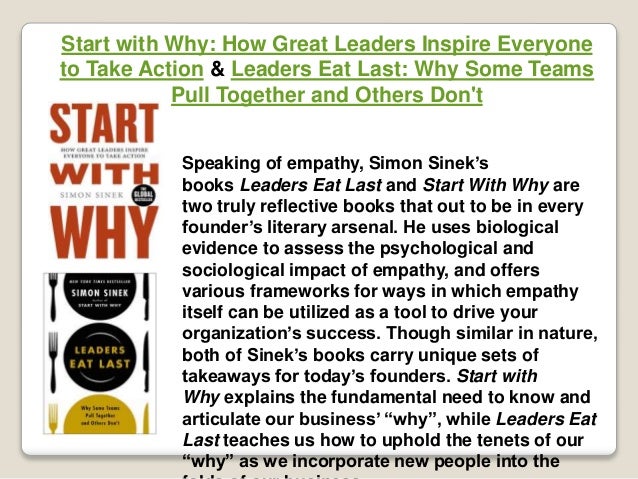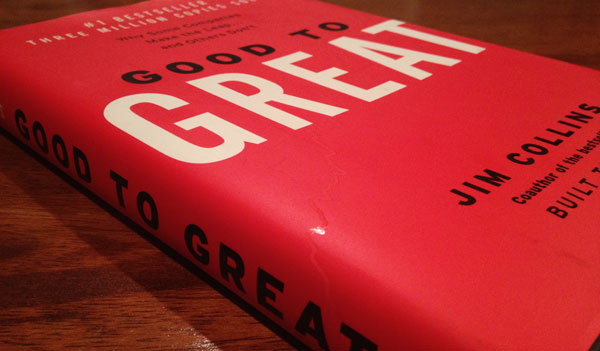No textbook can replace real activities, especially when one thinks of in operation — the hard judgment calls, the late nights, rolling your sleeves and getting dirty down inside the trenches along with your team. Remember this though, you‘ll be able to pave a smoother path for only yourself by looking towards the successful founders who came before you decide to. In the end, when aiming to really make it big, who better to find out from than those who’ve already been put with the wringer and are available on top? Read of their experiences and study their failures, then consider the way you might approach similar challenges.
Proactive learning like this will affect the way You Think That, improve the way in which you work, and transform the meaning of success for you personally and your company.
Unsure how to start your quest? Take a look at these fifteen books every entrepreneur should read.
if you are attempting to find much more recommendations for books to learn, take a look at and enter our free book giveaway.
15) The Hard Thing About Hard Things : Making a Business When There Are No Easy Answers

The Hard Thing About Hard Things: Building a Business When There Are No Easy Answers by Ben Horowitz – Books for Business Leaders | image : horticulture-nextgeneration.com
Ben Horowitz, cofounder of Andreessen Horowitz, offers up a brutally honest look not at what’s needed to start out a business, but what must be done to operate one. Readers can appreciate the equally entertaining and shrewd descriptions of his journey from software engineer to venture capital CEO. His no-nonsense approach and relatable wisdom are characteristics I consider to become invaluable for anyone inside a leadership role, whether with a startup or perhaps a Fortune-level corporation.
14 ) Resonate : Present Visual Stories That Transform Audiences

Resonate – Present Visual Stories That Transform Audiences by Nancy Duarte – Books for Business Leaders | image : mattsmallman.com
Whether you’re doing the dog and pony show for funding, trying to effectively communicate along with your team, or seeking to position yourself like a thought leader with your industry, you’re visiting got to learn in order to make and provide stellar presentations. Ask any business owner and she or he will inform you, strong in-person presentation and communication skills will be the difference involving the remembered and also the forgotten.
In her own book Resonate, presentation expert and Harvard Business Review contributor Nancy Duarte explores numerous proven techniques for transforming any presentation into what she describes as”an engaging journey” for audiences. Like the leaders in our companies, it is imperative that many of us keep a thorough command from the spoken word in a way that elicits any quantity of desired responses from clients, investors, and colleagues alike. This book spells the how-tos behind these key communicative skills.
13) Business Model Generation : A Handbook for Visionaries, Game Changers, and Challengers
Business Model Generation: A Handbook For Visionaries, Game Changers, And Challengers (Portable Version) by Alexander Osterwalder, Yves Pigneur – Books for Business Leaders | image : quoracdn.net
With social networks, blogs, and daily startup life generating more din than an oncoming freight train, knowing when and how you can cut with the noise could be tough. Business Model Generation zeroes in on today’s shared language of success while educating readers in regards to the building blocks of businesses, beginning having a concept referred to as business model canvas. This book stands being an invaluable tool for defining, iterating upon, and innovating your company model.
12) This really is Service Design Thinking : Basics, Tools, Cases

This is Service Design Thinking: Basics – Tools – Cases by Marc Stickdorn – Books for Business Leaders | image : jakobschneider.com
The core of each successful startup today hinges on the merchandise and also the experience, whether it is for any user or consumer. Here Mark Stickdorn highlights the significance of human-centered design and discusses methods for customer and design research. I’d say without reservation that it one’s a must-read for just about any active or aspiring business owner or product marketer.
11) Gamestorming : A Playbook for Innovators, Rulebreakers, and Changemakers

Gamestorming: A Playbook for Innovators, Rule-breakers, and Changemakers by Dave Gray (Goodreads Author), Sunni Brown, James Macanufo – Books for Business Leaders | image : goodreads.com
Brainstorms possess a chance to either exhilarate and excite or frustrate and discourage those participants charged with creating from their store products, campaigns, or brand concepts. Many reports point towards the latter, maintaining that almost all brainstorms are toxic and also a complete waste of your time. Says organizational psychologist Adrian Furnham, “Evidence from science means that business people should be insane to make use of brainstorming groups. ”
But before you decide to run off and eliminate groupthink from the toolbox, I would recommend you read Gamestorming by Dave Gray. This self-described playbook serves like a how-to for overseeing effective team collaboration. Grab yourself a copy if you’re seeking to shake in the ways during which you co-create and ideate with employees or customers. I ought to know– this book inspired an entirely new approach to growth hacking at our company, which we’re now calling the 50 / 50 experiment.
10) Value Proposition Design : How you can Create Products and Services That Customers Want

Value Proposition Design: How to Create Products and Services Customers Want by Alexander Osterwalder, Yves Pigneur, Patricia Papadakos, Gregory Bernarda, Alan Smith – Books for Business Leaders | image : squarespace.com
By a similar team that brought us Business Model Generation, this book lays the groundwork for defining and understanding successful value propositions. Whether that success translates into your sound business with engaged and happy customers or a significant acquisition from Google, it’s safe to mention this book is really a worthwhile buy. With applicable exercises and workshop ideas for colleagues and clients alike, Value Proposition Design undoubtedly lives as much as its title.
9) The 21 Irrefutable Laws of Leadership : Follow Them and People Will Follow You

The 21 Irrefutable Laws of Leadership by John C. Maxwell – Books for Business Leaders | image : daveramsey.com
Lately you can’t scroll via a marketing blog without being inundated with headlines about shiny SAAS tools. Analytics, social listening, you name it. But with enough gizmos and services to fill our minds and browser extensions, it’s amazing how often we overlook the got to equip ourselves using the single most significant tool : our own capcapacity to lead. That’s because ultimately, it’s on us like the founders to instill that same virtue in your teams. As education expert John Holt once noted, “True leaders, briefly, don‘t make people into followers, but into other leaders. ”
8) The Lean Startup : How Today’s Entrepreneurs Use Continuous Innovation to Create Radically Successful Businesses

The Lean Startup: How Today’s Entrepreneurs Use Continuous Innovation to Create Radically Successful Businesses by Eric Ries (Goodreads Author) – Books for Business Leaders | image : famolution.com
Eric Ries is that the Tony Robbins from the startup world. Because of his refreshingly concise writing style, his book is chock filled with relatable lessons. His pointed honesty is one of the numerous reasons I refer this book to nearly every entrepreneur I do know. His explanation from the Build-Measure-Learn framework educates readers upon the uses of customer-based observation, a tool that need to exist at the guts of each startup.
7) The Founder’s Dilemmas : Anticipating and Avoiding the Pitfalls That Can Sink a Startup

The Founder’s Dilemmas: Anticipating and Avoiding the Pitfalls That Can Sink a Startup by Noam Wasserman – Books for Business Leaders | image : tech.co
This one stands out to its capcapacity to convey the many challenges you‘ll inevitably face like a founder. Author Noam Wasserman frames what he calls the “three R’s”– relationships, roles, and rewards– as factors every founder must constantly evaluate and adjust. He places special emphasis upon the ways during which organizers can confidently start making tough choices about human and financial capital. My personal favorite part relating to this read is when in-depth the lessons it contains actually are. Suffice it to mention, I wish it existed when I‘d been starting my business.
6) Essentialism : The Disciplined Pursuit of Less

Essentialism: The Disciplined Pursuit of Less by Greg McKeown – Books for Business Leaders | image : travelingbybook.wordpress.com
Like the founder, owner, and veritable captain of your respective ship, you are able to expect to encounter countless distractions, both personal and professional. Great leaders understand how and when you should be myopic with their scope of work. Essentialism teaches us the ways of the modern day “essentialist”. That‘s, how as being type that works smarter, not harder, in an effort to maximize on productivity levels over the board.
5) Creativity, Inc. : Overcoming the Unseen Forces That Stand inside the Method of True Inspiration

Creativity, Inc.: Overcoming the Unseen Forces That Stand in the Way of True Inspiration by Ed Catmull, Amy Wallace – Books for Business Leaders | image : hwardcommunications.com
Once we point out failure being the foundation for achievement, Ed Catmull’s Creativity, Inc. is treasured by most to its candid story and magnificence. Inside it, he recounts the inception and creation of his company (for all those unaware, that’d be the planet famous Pixar Animation Studios ). It’s not your average philosophical recipe for management or bland, chest-pounding tale of overcoming the odds, but instead an easy narrative of one man’s childhood love for art and technology. How he forged that straight into the ideals and experiences behind probably the most innovative companies in our time, is a thing every one among us can stand to find out a thing or two from. This one’s a remarkably insightful look into how even the foremost successful careers are made up of countless failures. Catmull’s introspection and empathy are really inspiring.
4 & 3 ) Get started by Why : How Great Leaders Inspire Everyone to Take Action & Leaders Eat Last : Why Some Teams Pull Together and Others Don’t

Start with Why: How Great Leaders Inspire Everyone to Take Action & Leaders Eat Last: Why Some Teams Pull Together and Others Don’t Speaking of empathy – Books for Business Leaders | image : slidesharecdn.com
Talking about empathy, Simon Sinek’s books Leaders Eat Last and Start With Why are two truly reflective books that over to have every founder’s literary arsenal. He uses biological evidence to measure the psychological and sociological impact of empathy, and offers various frameworks for ways during which empathy itself could be utilized like a tool to drive your organization’s success. Though similar in nature, both of Sinek’s books carry unique sets of takeaways for today’s founders. Get started by Why explains the fundamental have to know and articulate our business’ “why”, while Leaders Eat Last teaches us how you can uphold the tenets in our “why” once we incorporate new people straight into the folds in our business.
2) Outliers : The Story of Success

Outliers: The Story of Success by Malcolm Gladwell – Books for Business Leaders | image : itpd.mn
Once we take into consideration what drives success, we often point to fundamental elements like labor, passion, and commitment. But what is it with more arbitrary factors as a person’s birth date, cultural background, or familial upbringing? Author Malcolm Gladwell encourages readers to think about how individualized one’s own potential for achievement actually is. Redefine your definition of success–and learn how the “10, 000-Hour Rule” relates to you– during this thought-provoking bestseller.
1) Good to Great : Why Some Companies Result in the Leap … And Others Don’t

Good to Great: Why Some Companies Make the Leap… and Others Don’t by James C. Collins – Books for Business Leaders | image : toolsandtoys.net
Let’s be real, not every company among us breeds excellence. Although some possess the DNA makeup conducive to long-term success, countless others simply don‘t. But can it be possible, still, for all those companies classified as “mediocre” to carve out permanent places on their own in today’s market? In order to make the leap from good to great? Jim Collins examines this, and simultaneously uncovers a particular group of characteristics proficient at distinguishing a company’s potential for enduring greatness. The findings in Good to Great reveal the qualities of successful leaders, the significance of technology, and the call for a disciplined culture, among numerous other truths that could almost certainly impact your company.
So whether you’re still watering the seedling in an idea, or currently running a full-fledged startup, there always stands the got to learn from those before you decide to. The entrepreneurial mindset is very erratic, so a solid foundation of lessons, learnings, and guidelines is vital to moving onwards and upwards… inside the right direction !
Exist any standby books with your library that I didn’t include here?
Comments